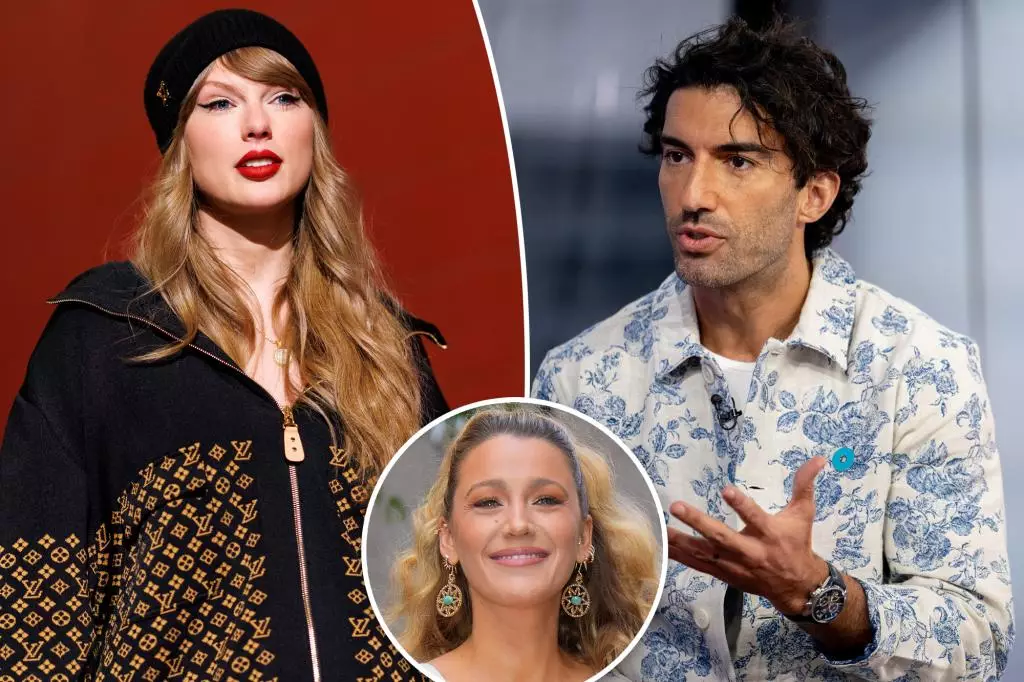In a surprising turn of events, the legal saga surrounding Justin Baldoni and Taylor Swift has taken an unexpected pause. Baldoni’s legal team has decided to withdraw the subpoena issued to the pop icon amid ongoing litigation with actress Blake Lively, illustrating yet again how intertwined personal and professional relationships can become in the high-stakes world of Hollywood. Article reports confirmed that Baldoni’s quest for information from Swift had reached its conclusion, although the specifics of that acquired information remain undisclosed. This unexpected retreat from legal aggression raises questions about the motivations and ramifications of such actions in Hollywood’s convoluted legal battles.
The Role of Influence and Allegations
The heart of the matter lies within Baldoni’s ongoing defamation and extortion lawsuit. At the core of the legal drama is the claim that Taylor Swift was somehow involved in Lively’s alleged maneuvers for control over the film adaptation of “It Ends With Us.” This notion, spearheaded by Baldoni’s lawyer Bryan Freedman, suggests that Swift’s celebrity status could wield significant influence over public perceptions and judicial proceedings. Freedman’s allegations, linking Swift—not to mention her husband Ryan Reynolds—as pivotal “dragons,” insinuate a power struggle that extends beyond the courtroom, highlighting how celebrity clout can dictate both narrative and legal pursuits.
The notion that Lively’s friendship with Swift was leveraged for strategic advantage adds a striking layer to the situation. In the court documents, Freedman alleged that Lively sent a concerning text depicting her famous friends as formidable protectors, indicating the potential risk Baldoni faced in pursuing his claims. This raises important questions about the nature of collaboration and friendship in a highly publicized environment, where standing by someone can also mean ushering them into the legal crossfire.
Response from Blake Lively’s Camp
Following the decision to retract the subpoena, Lively’s representatives made it clear they viewed the initial legal maneuvering as harassment. They expressed relief at the withdrawal, framing it as a victory in standing up against unjust intimidation tactics faced by third-party individuals caught in legal disputes. Their assertion that Baldoni’s actions were dilatory and inappropriate highlights a broader conversation about the ethical responsibilities of public figures and their legal teams. If we consider both parties’ claims, it becomes evident that a significant power imbalance can often skew the scales of justice in the showbiz world.
Lively’s representatives underscored this imbalance, accusing Baldoni and his team of unnecessary aggression towards Swift, a figure celebrated for her resilience and ability to inspire millions. Their stance implies that invoking someone’s name and reputation—especially without consent—can have lasting repercussions not just legally, but socially as well. This incident serves as an illustration of the problematic intersections of celebrity culture, where a simple legal dispute becomes a public relations nightmare.
The Court’s Stance and Public Perception
A pivotal moment came when the judge ruled against the admissibility of Freedman’s allegations, underlying the fragility of legal claims anchored primarily in conjecture. Swift has maintained a distance from the controversy surrounding “It Ends With Us,” emphasizing her lack of involvement in the project and dismissing any accusations linking her to Lively’s purported schemes as baseless. By vocally denying these associations, Swift demonstrates a protective stance not only for her career but also her public image.
This dynamic highlights the broader implications of celebrity involvement in legal disputes. It’s essential to consider the potential damage to personal brands when narratives spiral out of control due to allegations—whether substantiated or not. The ramifications of such legal battles often extend beyond the courtroom, influencing public perception and potentially altering career trajectories in the competitive entertainment landscape.
With the withdrawal of the subpoena, the immediate tensions may have eased, but the underlying issues remain. The interplay between celebrity, influence, and law continues to spark debates on ethical conduct and fair treatment in high-profile disputes. In an era where every move is scrutinized, perhaps this legal drama serves as a cautionary tale for public figures navigating the complex intersections of personal relationships and professional responsibilities. The implications of such disputes will linger, reminding us that the personal is, indeed, often political and always complicated in the world of stardom.

